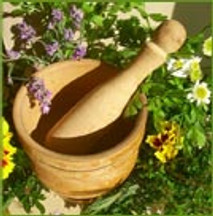Feb 13th 2025
Herbal Remedies for Allergy Relief: Find Natural Solutions for Your Symptoms

Allergies can disrupt your life, causing uncomfortable symptoms like sneezing, runny nose, itchy eyes, and skin rashes. While conventional treatments are effective, many people seek natural solutions for relief. Herbal remedies offer a complementary approach to managing allergy symptoms.
Common Allergy Symptoms
Allergy symptoms vary depending on the allergen and individual sensitivity. Recognizing these symptoms is the first step to finding relief:
- Skin Allergies: Rashes, itching, redness, swelling, bumps, flaky skin, and cracked skin.
- Animal Allergies: Runny or stuffy nose, face pain, sneezing, watery/red/itchy eyes, cough, chest tightness, shortness of breath, skin rash, or hives.
- Bug Allergies: Coughing/wheezing, stuffy nose, sinus or ear infection, and skin rash.
- Dust Allergies: Sneezing, runny or stuffy nose, red/itchy/watery eyes, itchy skin, wheezing, coughing, and shortness of breath.
- Food Allergies: Symptoms can affect any part of the body.
- Seasonal/Environmental Allergies: Runny nose, sneezing, coughing, red/watery eyes, and itching around the nose, mouth, or eyes.
Untreated allergy symptoms can lead to complications. In severe cases, allergies can cause anaphylaxis, a life-threatening reaction.
Herbal Remedies for Allergy Relief
Herbs have been used for centuries to alleviate allergy symptoms. Here are some well-known options to consider:
- Butterbur: This herb is known for its anti-inflammatory and antihistamine properties, making it effective for relieving nasal symptoms and reducing inflammation 1 8. Studies suggest butterbur can work similarly to over-the-counter antihistamines 1 2. Look for "PA-free" products to avoid potential liver damage 2.
- Stinging Nettle: Stinging nettle acts as a natural antihistamine and anti-inflammatory 1 6 7. It may help control histamine levels in the body, reducing symptoms like sneezing, itching, and congestion 1 6. Stinging nettle can be consumed as tea or in capsule form 6.
- Quercetin: Found in fruits and vegetables, quercetin is a natural antihistamine and anti-inflammatory12. It stabilizes the release of histamines, reducing allergy symptoms1. Good sources include onions, apples, broccoli, and citrus fruits 1 2.
- Eucalyptus and Peppermint: These herbs are beneficial for sinus congestion 4. Eucalyptus has anti-inflammatory and decongestant properties 4. Peppermint can also help clear nasal passages 4. Eucalyptus oil can be used in a diffuser or added to steam 4.
- Spirulina: Spirulina is a type of algae that contains bioactive compounds with reported anti-allergy activity 9.
- Other Potential Herbs: Turmeric is a great herb for allergies because it has strong anti-inflammatory properties 1.
Other Natural Remedies
In addition to herbs, consider these natural approaches:
- Local Honey: Local raw honey may help desensitize you to local pollen 4.
- Vitamin C: Acts as a natural antihistamine 4.
- Steam Therapy: Inhaling steam, with or without eucalyptus or peppermint oil, can clear nasal passages 4.
- Acupuncture: May help reduce symptoms of hay fever 5.
- Probiotics: Probiotics can help balance the immune system and may reduce the severity of allergy symptoms 1.
Important Considerations
- Consult a Healthcare Provider: Always consult a healthcare provider before starting any new herbal or natural treatment 1 2 6.
- Quality and Sourcing: Choose high-quality herbs and supplements from reputable sources 5.
- Disclaimer: This information is for educational purposes only and is not a substitute for professional medical advice.
By exploring herbal and natural remedies, you can find additional support for managing your allergy symptoms. Remember to work with your healthcare provider to determine the best approach for your individual needs.

